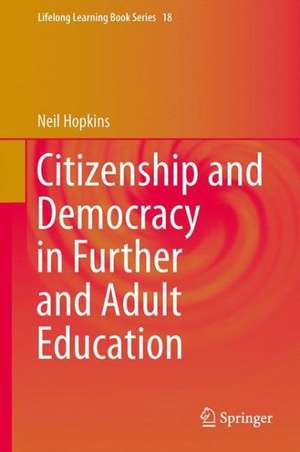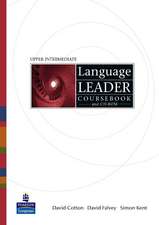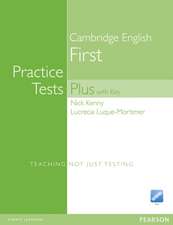Citizenship and Democracy in Further and Adult Education: Lifelong Learning Book Series, cartea 18
Autor Neil Hopkinsen Limba Engleză Hardback – 12 aug 2013
| Toate formatele și edițiile | Preț | Express |
|---|---|---|
| Paperback (1) | 635.31 lei 6-8 săpt. | |
| SPRINGER NETHERLANDS – 7 aug 2015 | 635.31 lei 6-8 săpt. | |
| Hardback (1) | 640.06 lei 6-8 săpt. | |
| SPRINGER NETHERLANDS – 12 aug 2013 | 640.06 lei 6-8 săpt. |
Din seria Lifelong Learning Book Series
- 18%
 Preț: 775.78 lei
Preț: 775.78 lei - 18%
 Preț: 887.38 lei
Preț: 887.38 lei - 18%
 Preț: 777.20 lei
Preț: 777.20 lei - 15%
 Preț: 642.51 lei
Preț: 642.51 lei - 18%
 Preț: 958.56 lei
Preț: 958.56 lei - 18%
 Preț: 1111.17 lei
Preț: 1111.17 lei - 18%
 Preț: 951.47 lei
Preț: 951.47 lei - 15%
 Preț: 646.43 lei
Preț: 646.43 lei - 18%
 Preț: 954.77 lei
Preț: 954.77 lei - 20%
 Preț: 559.21 lei
Preț: 559.21 lei - 15%
 Preț: 639.25 lei
Preț: 639.25 lei - 20%
 Preț: 557.46 lei
Preț: 557.46 lei - 20%
 Preț: 574.62 lei
Preț: 574.62 lei - 15%
 Preț: 637.28 lei
Preț: 637.28 lei - 20%
 Preț: 573.21 lei
Preț: 573.21 lei -
 Preț: 395.09 lei
Preț: 395.09 lei - 24%
 Preț: 864.87 lei
Preț: 864.87 lei - 18%
 Preț: 1116.57 lei
Preț: 1116.57 lei - 24%
 Preț: 736.32 lei
Preț: 736.32 lei - 20%
 Preț: 574.08 lei
Preț: 574.08 lei -
 Preț: 423.29 lei
Preț: 423.29 lei - 24%
 Preț: 686.15 lei
Preț: 686.15 lei - 15%
 Preț: 641.53 lei
Preț: 641.53 lei - 24%
 Preț: 900.85 lei
Preț: 900.85 lei - 15%
 Preț: 643.34 lei
Preț: 643.34 lei - 18%
 Preț: 958.25 lei
Preț: 958.25 lei - 18%
 Preț: 951.91 lei
Preț: 951.91 lei
Preț: 640.06 lei
Preț vechi: 753.01 lei
-15% Nou
Puncte Express: 960
Preț estimativ în valută:
122.47€ • 128.33$ • 101.25£
122.47€ • 128.33$ • 101.25£
Carte tipărită la comandă
Livrare economică 11-25 aprilie
Preluare comenzi: 021 569.72.76
Specificații
ISBN-13: 9789400772281
ISBN-10: 9400772289
Pagini: 192
Ilustrații: XI, 178 p.
Dimensiuni: 155 x 235 x 20 mm
Greutate: 0.41 kg
Ediția:2014
Editura: SPRINGER NETHERLANDS
Colecția Springer
Seria Lifelong Learning Book Series
Locul publicării:Dordrecht, Netherlands
ISBN-10: 9400772289
Pagini: 192
Ilustrații: XI, 178 p.
Dimensiuni: 155 x 235 x 20 mm
Greutate: 0.41 kg
Ediția:2014
Editura: SPRINGER NETHERLANDS
Colecția Springer
Seria Lifelong Learning Book Series
Locul publicării:Dordrecht, Netherlands
Public țintă
ResearchCuprins
1. Introduction.- 2. Citizenship and Political Philosophy.- 3. Further and Adult Education: An Overview of Citizenship.- 4. The Apprenticeship Tradition in Further Education.- 5. Vocational Education: A European Perspective.- 6. The Self-Help Tradition in Adult Education.- 7. College Governance and Deliberative Democracy.- 8. Conclusion.- References.- Index.
Recenzii
“Hopkins has written an insightful and interesting book, raised a range of issues with further and adult education and offered a challenge to improve the quality of citizenship education. It will no doubt provide a platform for further exploration and discussion to come. … book will enable interested teachers to explore the possible spaces for citizenship education in their places of work. … it both adds to practice and promotes the application of philosophy of education to a neglected field.” (Richard Davies, Philosophy of Education Society of Great Britain, philosophy-of-education.org, June, 2015)
This book offers a timely, engaging and insightful discussion of citizenship education in further and adult education in the UK. Drawing on contemporary work in political philosophy, democratic theory and history and philosophy of education, the author makes important suggestions as to how to incorporate and embed democratic citizenship within a range of further and adult education institutions and practices. The book will be of interest to educators, students, policy-makers and educational theorists.
Judith Suissa, Institute of Education, University of London, UK
This book offers a timely, engaging and insightful discussion of citizenship education in further and adult education in the UK. Drawing on contemporary work in political philosophy, democratic theory and history and philosophy of education, the author makes important suggestions as to how to incorporate and embed democratic citizenship within a range of further and adult education institutions and practices. The book will be of interest to educators, students, policy-makers and educational theorists.
Judith Suissa, Institute of Education, University of London, UK
Textul de pe ultima copertă
This book addresses the questions why citizenship education is an important subject for students in further and adult education and why we need democratic colleges to support the study of citizenship education. It investigates the historical roots of further and adult education and identifies how the adoption of citizenship education in the post-compulsory sector can enrich vocational studies in further education and programmes in adult education. It is argued that democratic colleges are vital to ensure that citizenship education informs the decision-making process throughout educational institutions (and as a means of establishing fair and equal representation for important stakeholders). The author has worked in both sectors for over a decade, and uses this experience to offer a blend of educational practice and philosophical investigation. The result is a work that appeals to both teachers in further and adult education as well as academics and students interested in philosophy of education.
Caracteristici
Clear linking of theory to educational practice regarding citizenship education in both further and adult education Strong philosophical and historical underpinning Includes a discussion of current policies in further and adult education Explores an area currently neglected within the educational and philosophical literature ?






